Guest Post for International Anti-Street Harassment Week
By Blythe Tyrone
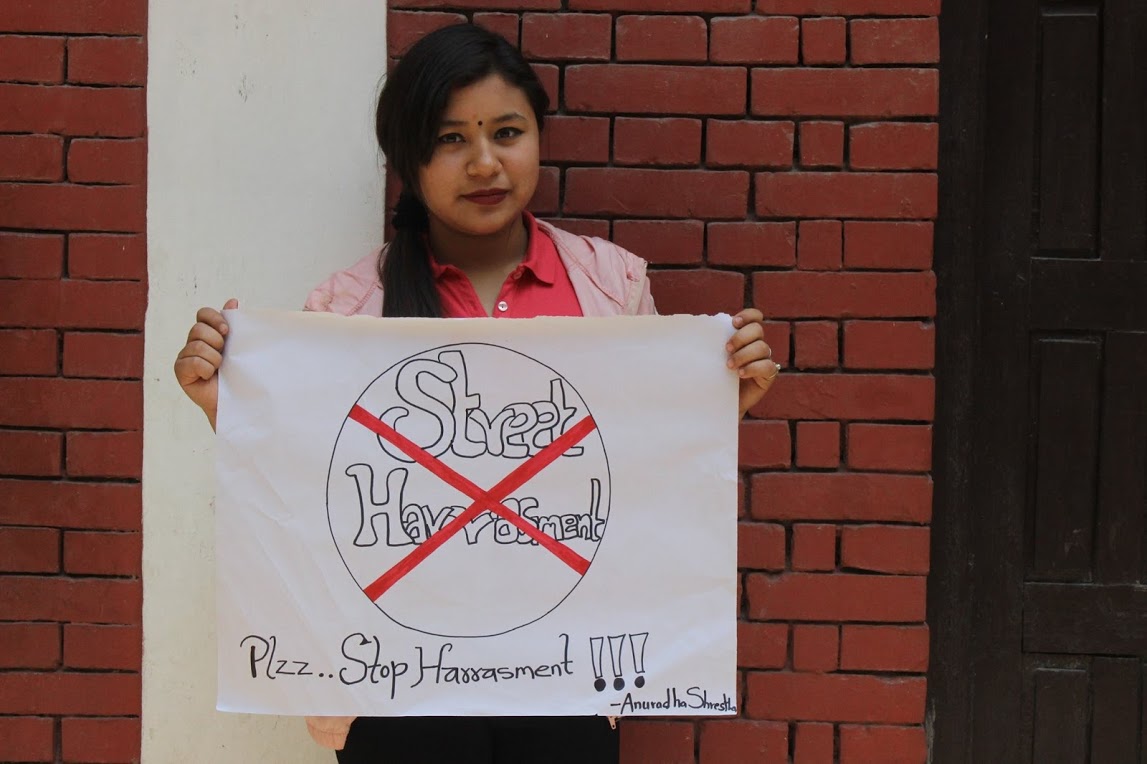
Ask any woman if she’s experienced street harassment, and she’s likely to respond emphatically in the affirmative. She’ll probably have a few anecdotes to share (she might even laugh while doing so), recounting what was said and done by whom, maybe regretting the way she handled the situation but recognizing the potential danger of an alternative response. As result of the harassment, she might share that she now avoids that one street at certain times of the day, or perhaps makes a point to listen to music while walking down a city street to discourage unwanted comments, or simply to drown them out.
To a passerby, street harassment may just seem like harmless words, but these uninvited interactions have real effects on women’s daily lives. I intentionally don’t jog on the sidewalk of high-traffic streets, for instance, because the occasional honk or holler is jarring and distracting from what should otherwise be a stress-relieving activity. It’s minor, but it’s a real change I have made in my life because of street harassment.
Because street harassment is so common, it seemed like an area that would be ripe for academic research, but when I started digging into the literature, I was surprised at how little I could find, especially compared to similar topics like sexual harassment. I thought street harassment was such an obvious problem and was surprised that no one seemed to care about it. I could find peer-reviewed research on what pick-up lines worked better at a bar, but little about something so common it’s been the subject of a viral video, comedy sketches, webcomics, think pieces, a Tumblr project, disturbing headlines, and initiatives.
The problem, I soon learned, was a simple matter of definition. What’s in a name? Well, quite a lot, apparently. Eventually I discovered that I was far from the only one interested in researching street harassment, but I was one of the few actually using that term. Street harassment research is scattered across disciplines under a variety of names such as stranger harassment (Fairchild & Rudman, 2008), public harassment (Gardner, 1995), catcalling (Wesellmann & Kelly, 2010), girl watching (Quinn, 2002), sexual terrorism (Nielson, 2002), street remarks (Kissling, 1991), and street hassling (West, 1987). So, earlier, when you asked that woman if she’s experienced street harassment? She could actually have described any one of these experiences.
Research is an important tradition that helps us understand problems and leads us to solutions. If we are not using the same words when identifying our problems, how can we expect to share what we have learned about them so that others may take our experience into consideration for their own work or build on it?
For my graduate thesis at NC State University, I have made a point to explore the many names street harassment research might be disguised under in past research. However, as more and more people – especially beyond the hallowed halls of academia – start using the term street harassment, not only might it spur researchers to start using the same name, but it may help spread awareness to the general public as well. To recognize and call out street harassment when we see it, we need to all be on the same page as to what we’re calling it to begin with. This isn’t to say that there are not many different layers that shape street harassment (it is certainly enmeshed in issues of race, power, gender, sexuality, etc.), but if we have a common place to start, we will be more unified and effective in the overall effort to stop street harassment.
Blythe Tyrone is a graduate student at NC State University studying street harassment for her thesis research. Follow her on Twitter @blythe_tyrone.

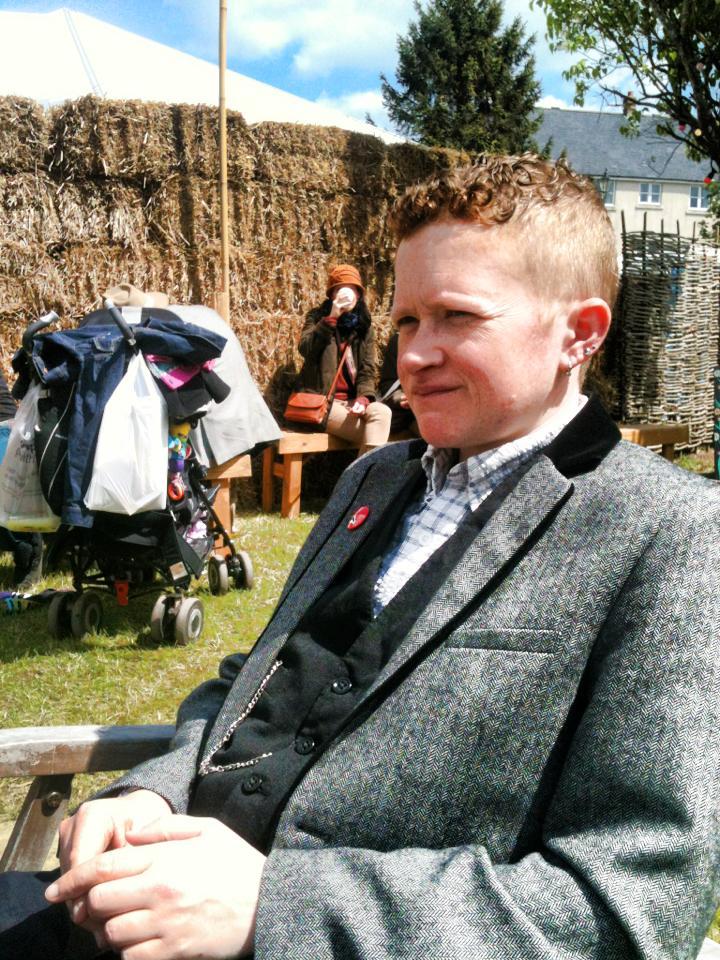

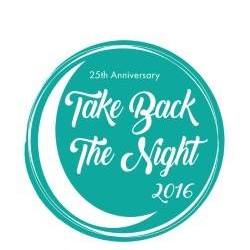 This event
This event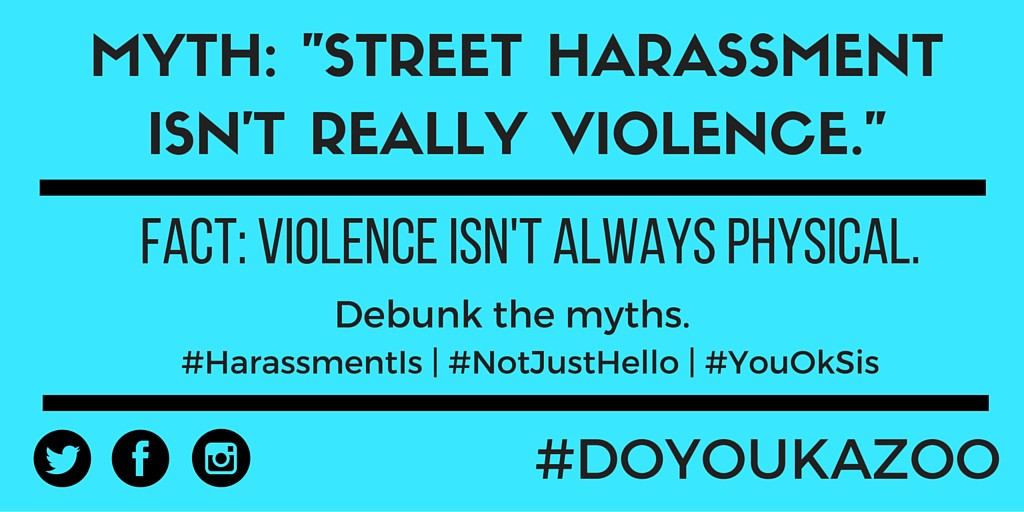 A committed group of people, brought together by
A committed group of people, brought together by 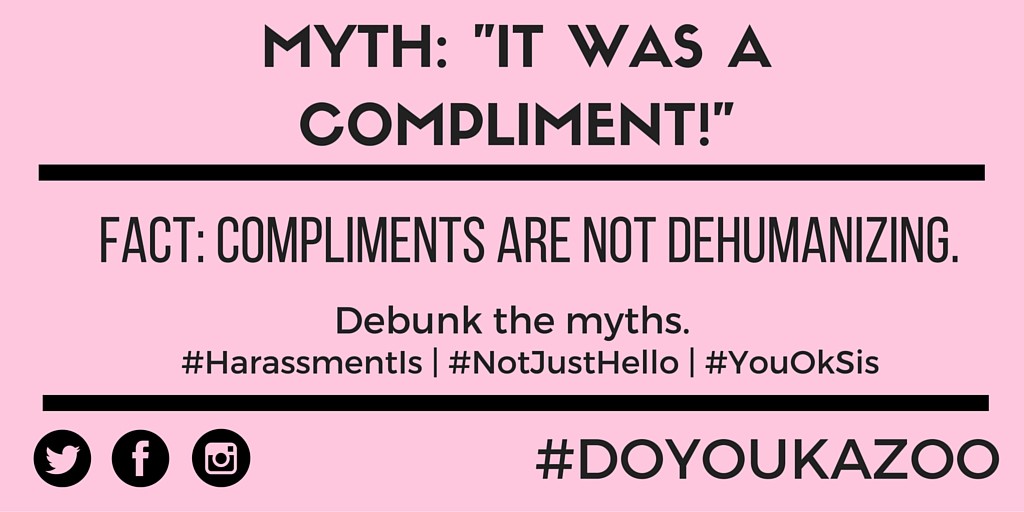 We chose the symbol and sound of a Kazoo to promote the idea that tools work best to call out rape culture and myths about gender violence, not to prevent it. The use of the Kazoo is inspired by a joke by comic Cameron Esposito, who wishes for a rape Kazoo instead of a rape whistle, in the hopes that its sound is more appealing and will garner help if she is attacked.
We chose the symbol and sound of a Kazoo to promote the idea that tools work best to call out rape culture and myths about gender violence, not to prevent it. The use of the Kazoo is inspired by a joke by comic Cameron Esposito, who wishes for a rape Kazoo instead of a rape whistle, in the hopes that its sound is more appealing and will garner help if she is attacked.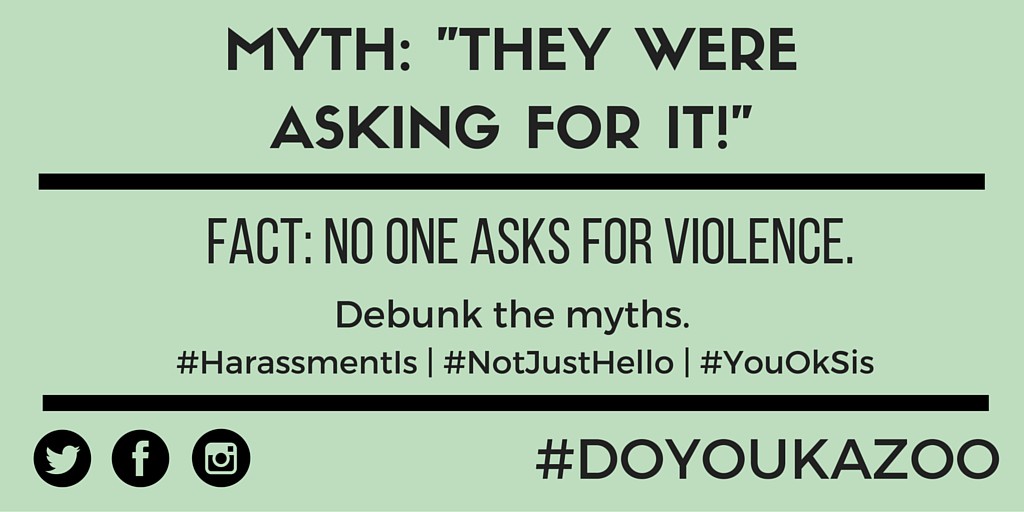 Key concepts:
Key concepts: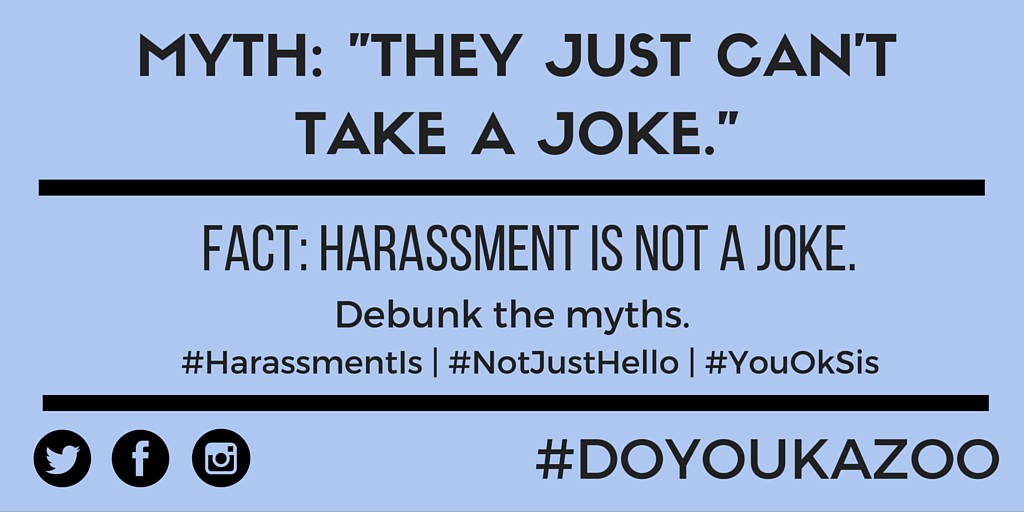
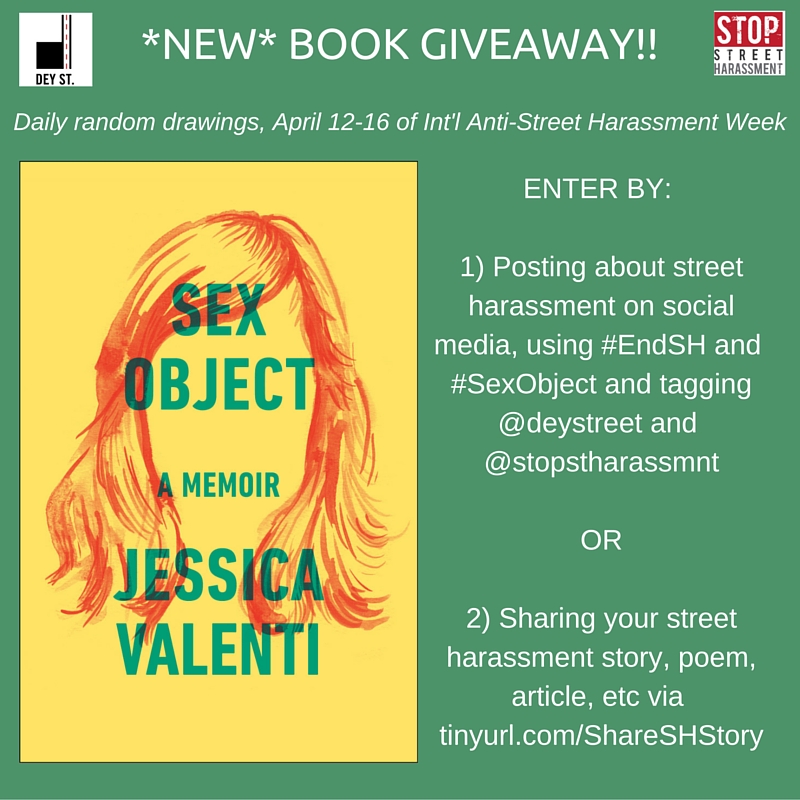 In honor of
In honor of 